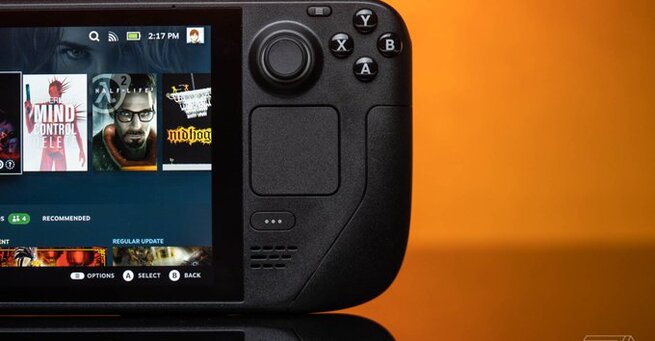
Are you looking for the latest Steam Deck update and wondering if SteamOS now supports other AMD handheld gaming devices? Valve’s big 2025 SteamOS release, version 3.7.8, answers that question with a resounding yes. This update not only delivers exciting new features to the Steam Deck itself but also officially opens the door for rival handhelds like Lenovo’s Legion Go and Asus’ ROG Ally to run SteamOS. If you want the ultimate gaming experience on portable AMD-based devices, this update could redefine your handheld gaming possibilities.
Valve’s latest SteamOS update is a game changer for AMD handheld gaming enthusiasts. For the first time, SteamOS 3.7.8 offers official support for Lenovo’s Legion Go S and provides a new recovery image allowing users to install SteamOS on other popular handhelds such as the Asus ROG Ally. Before this, gamers had to rely on unofficial hacks or third-party solutions to get SteamOS running on these devices. Now, Valve offers clear installation guidance, making it easier and safer to switch from Windows to a native SteamOS gaming environment. This move could significantly boost the popularity of SteamOS-powered AMD handheld consoles.
Even if you’re solely a Steam Deck user, the SteamOS 3.7.8 update delivers important improvements. Bluetooth headset support has expanded to include microphone input in desktop mode, making communication clearer for streamers and multiplayer gamers. Additionally, users can now wake their Steam Deck’s LCD remotely using a Bluetooth controller—a feature once exclusive to the OLED Steam Deck model. Battery health is a key focus too, with a new Battery Charge Limit setting to cap charging at 80%, helping extend your device’s lifespan when docked or constantly plugged in. For gamers demanding performance tuning, new options to control AMD CPU frequencies and frame-rate limits on variable refresh rate (VRR) displays add greater customization and efficiency.
Under the hood, SteamOS 3.7.8 is powered by the latest Arch Linux base, updated Mesa graphics drivers, and a newer Plasma desktop environment, delivering smoother performance and broader hardware compatibility. These backend improvements ensure that both Steam Deck and third-party handhelds benefit from faster, more stable gaming sessions and improved Linux-based desktop usability. Valve’s commitment to open-source technology and continuous updates keeps SteamOS competitive in the rapidly evolving handheld gaming market.
Valve hints at bigger ambitions with SteamOS beyond the Steam Deck and Legion Go. Official “Powered by SteamOS” licenses are in the works for other partners, potentially broadening the ecosystem for handheld consoles running native Steam software. Meanwhile, rumors swirl about Valve’s upcoming wireless VR headset “Deckard” and a possible SteamOS-based living room gaming console, signaling exciting new directions for the platform. With steady updates and growing hardware support, Valve appears poised to strengthen SteamOS as a key player in both portable and home gaming markets.
𝗦𝗲𝗺𝗮𝘀𝗼𝗰𝗶𝗮𝗹 𝗶𝘀 𝘄𝗵𝗲𝗿𝗲 𝗿𝗲𝗮𝗹 𝗽𝗲𝗼𝗽𝗹𝗲 𝗰𝗼𝗻𝗻𝗲𝗰𝘁, 𝗴𝗿𝗼𝘄, 𝗮𝗻𝗱 𝗯𝗲𝗹𝗼𝗻𝗴. We’re more than just a social platform — from jobs and blogs to events and daily chats, we bring people and ideas together in one simple, meaningful space.